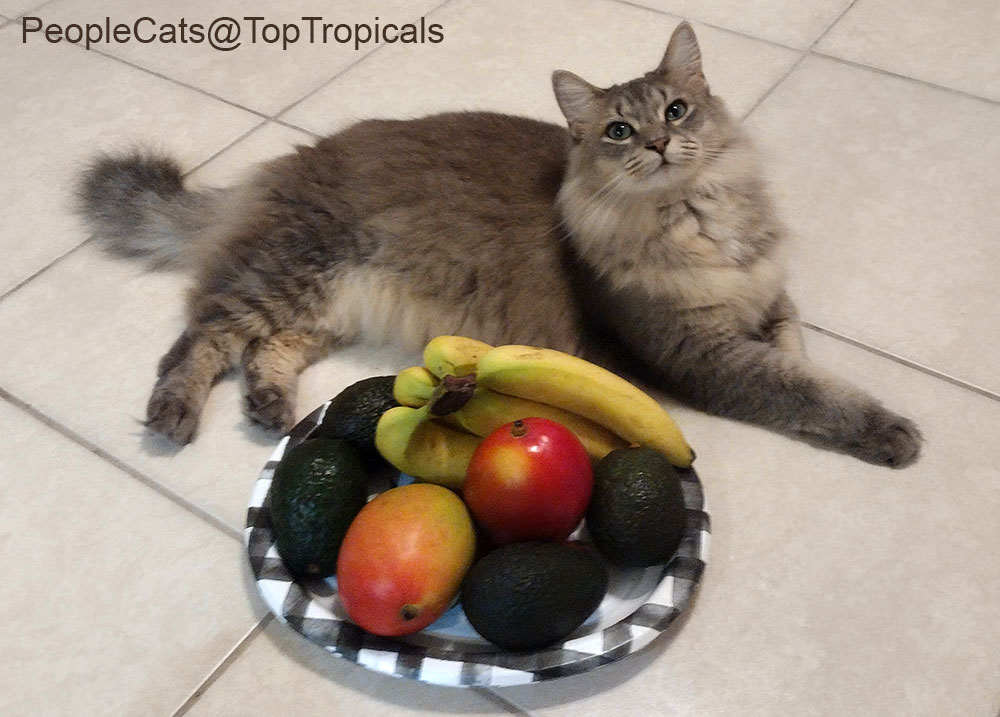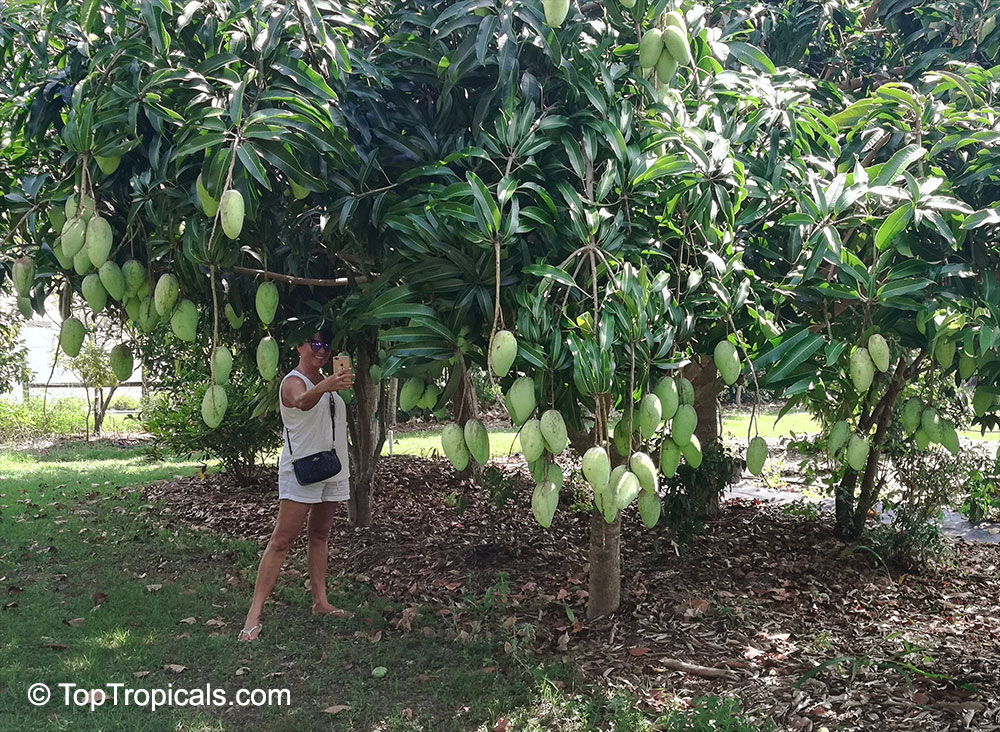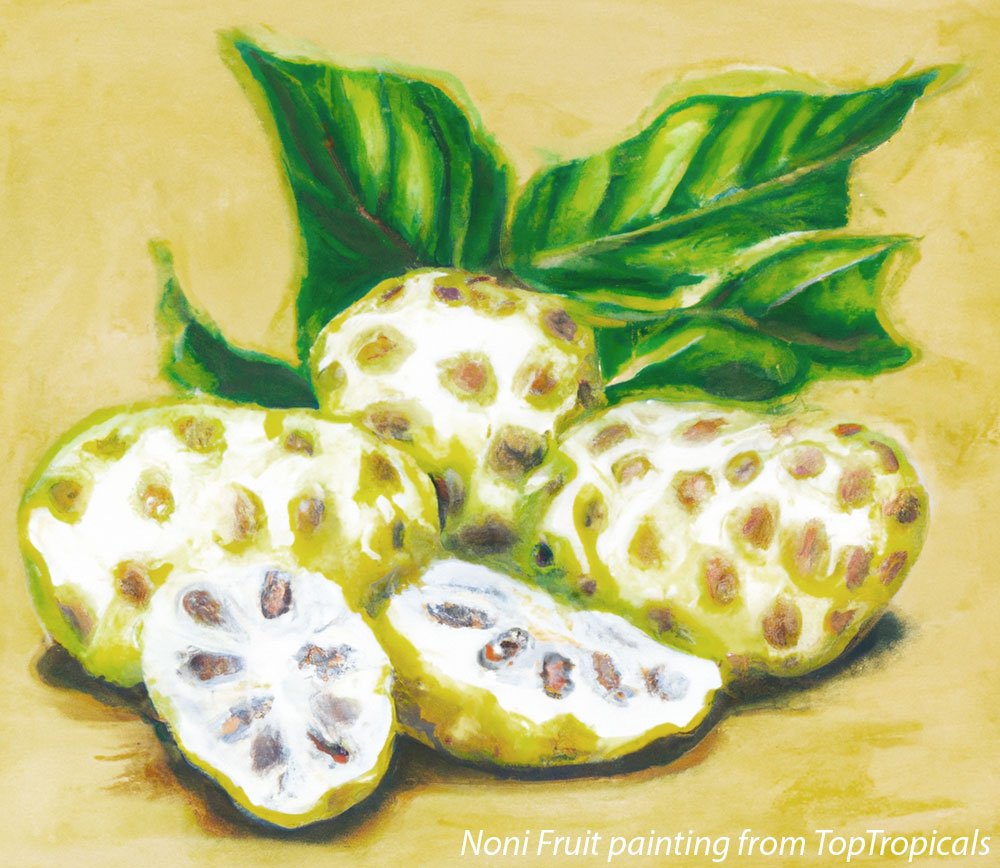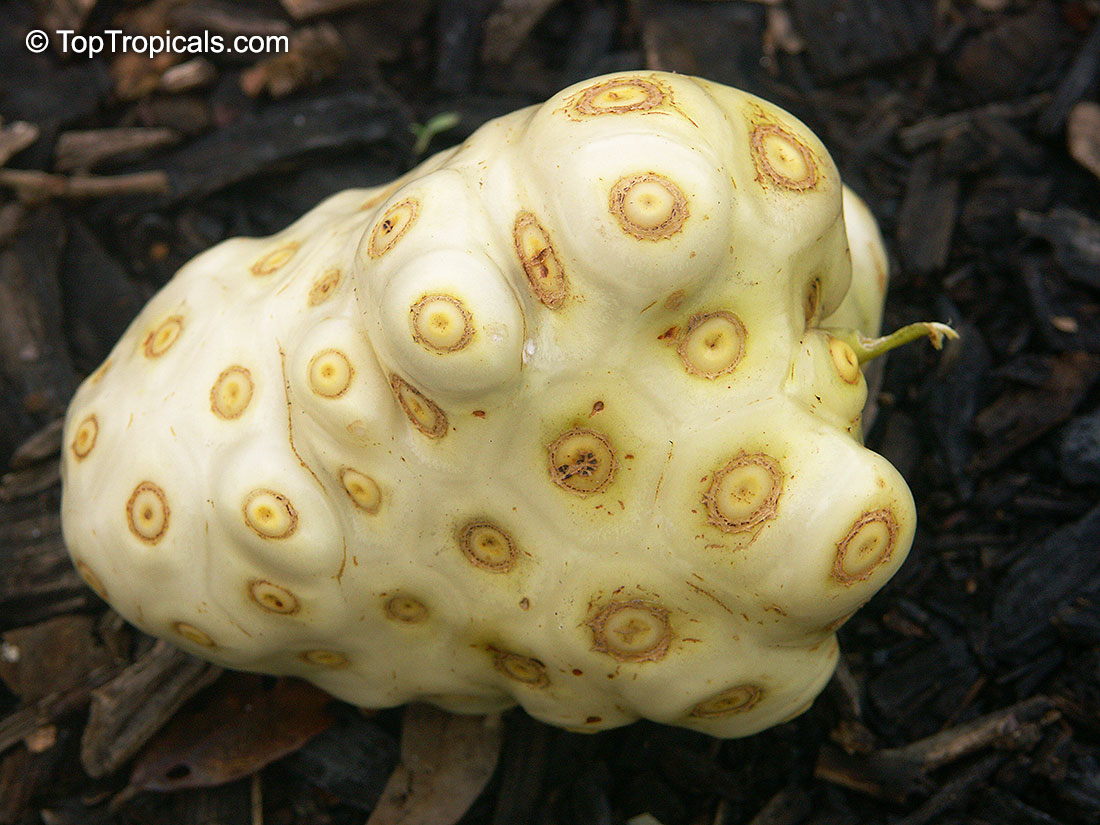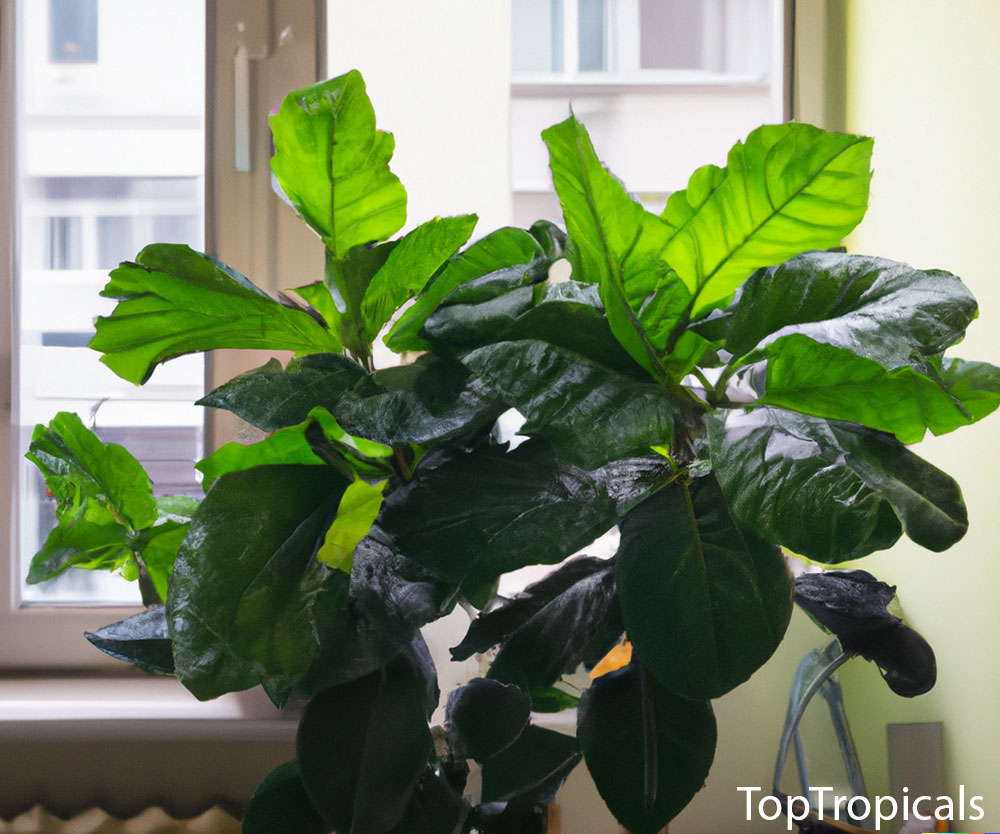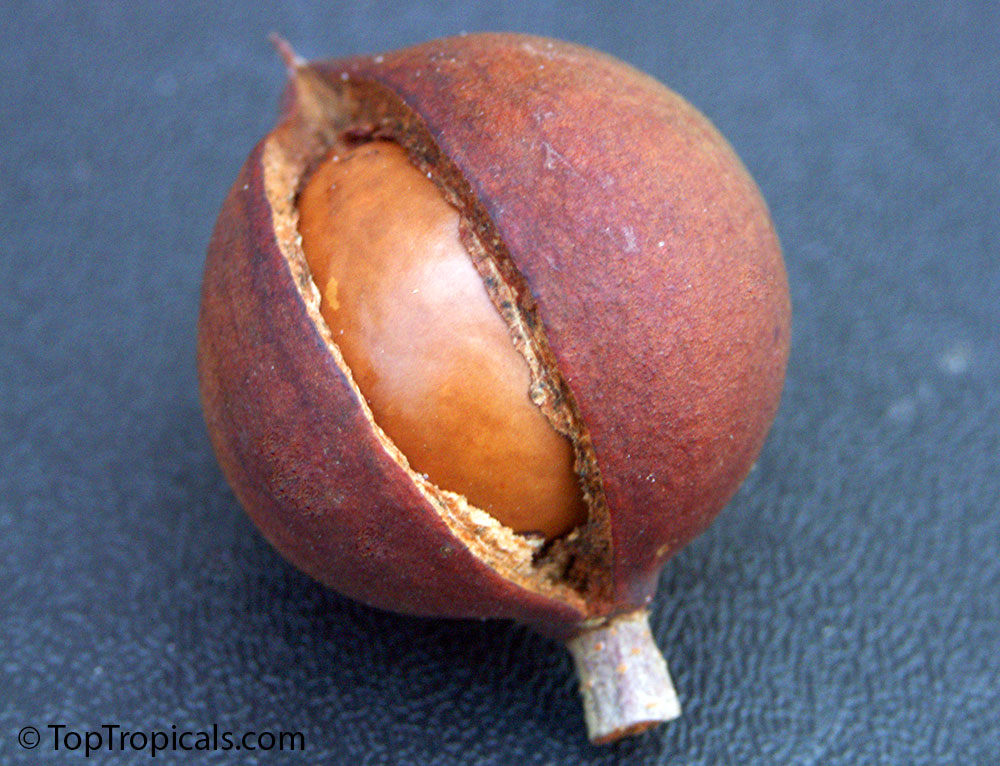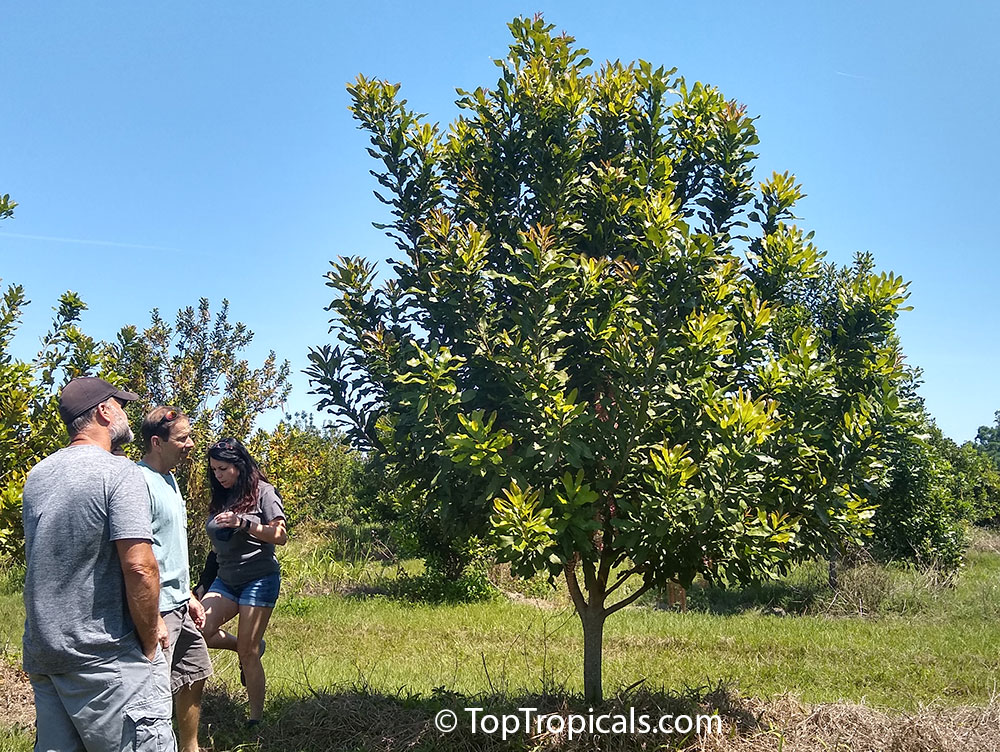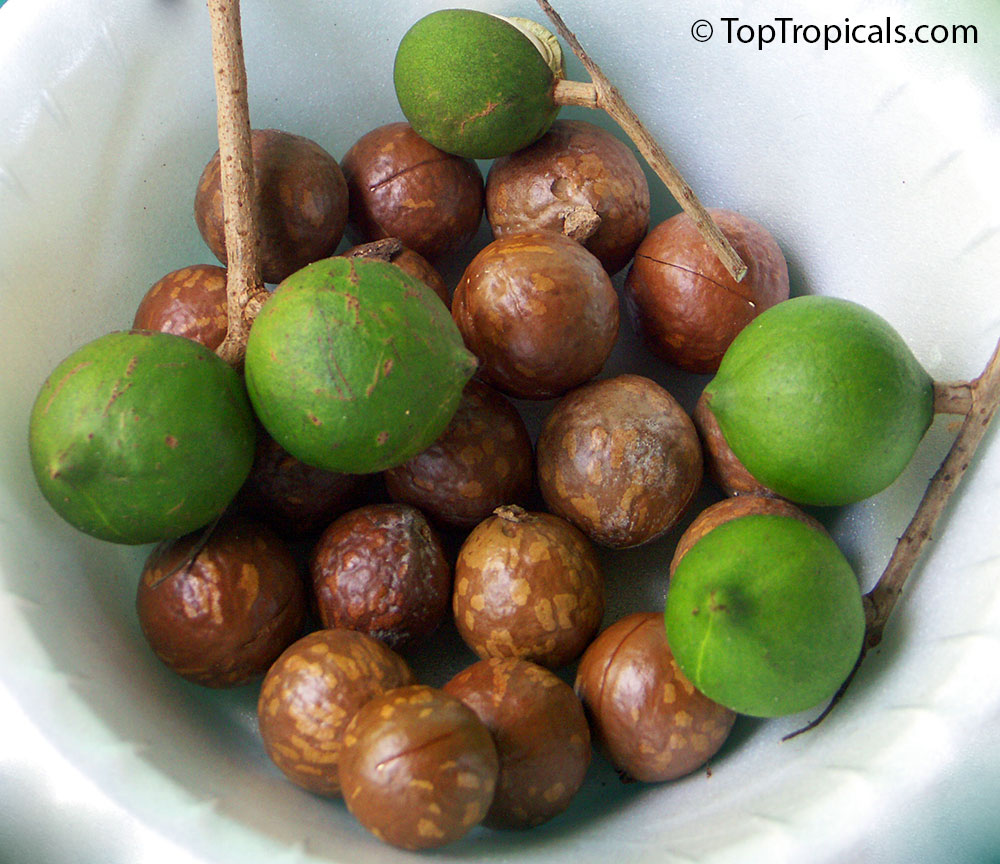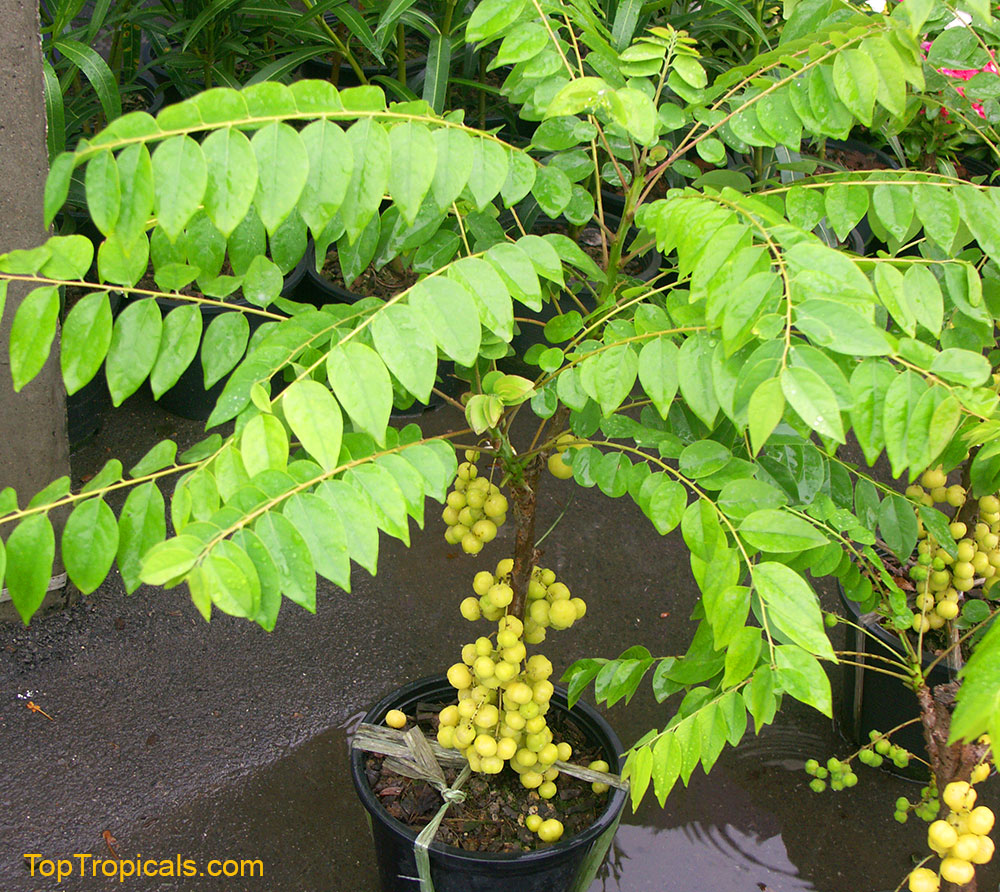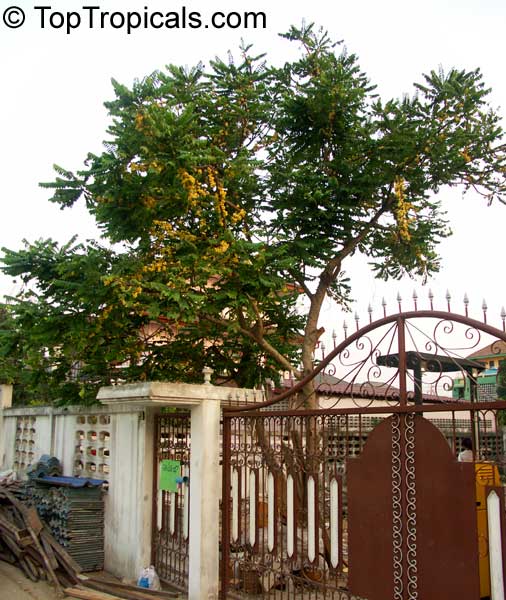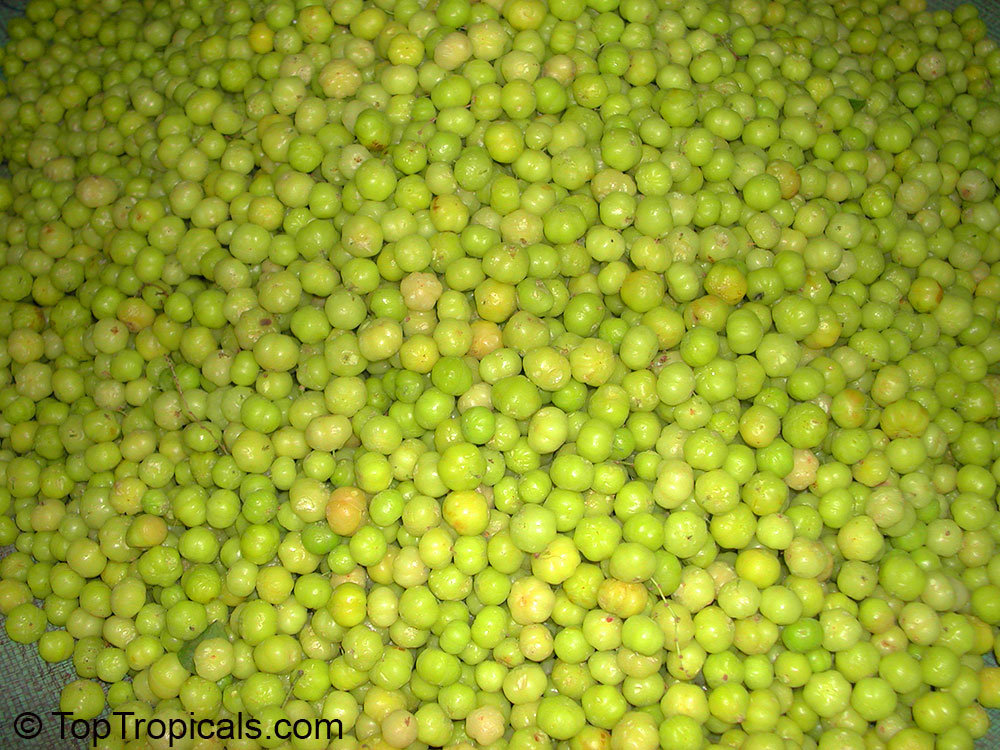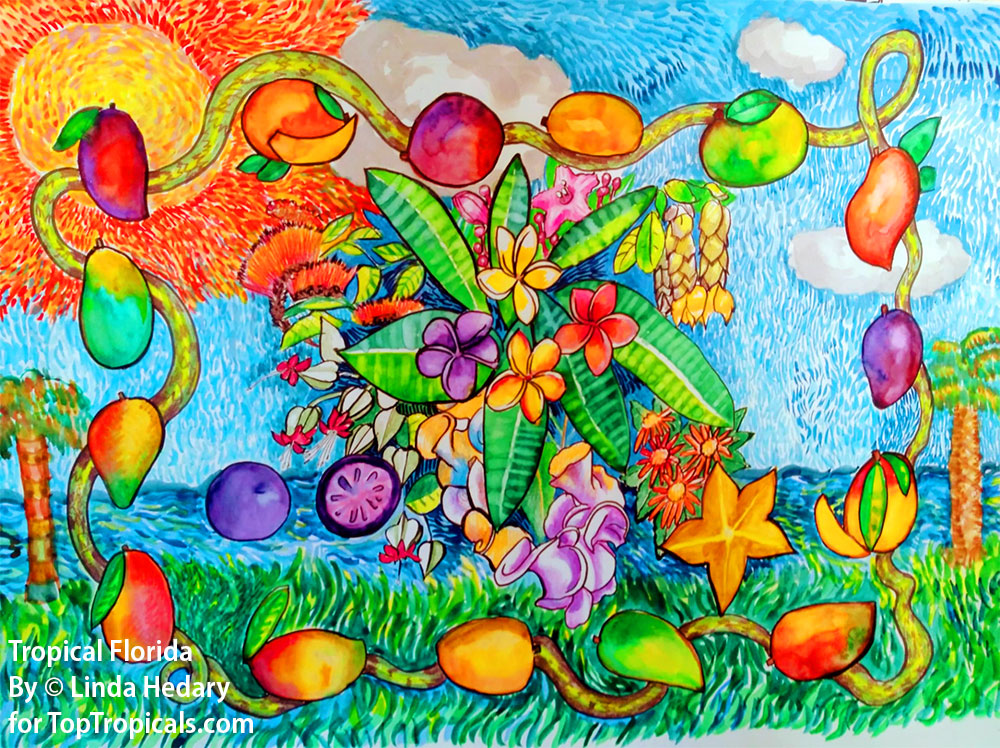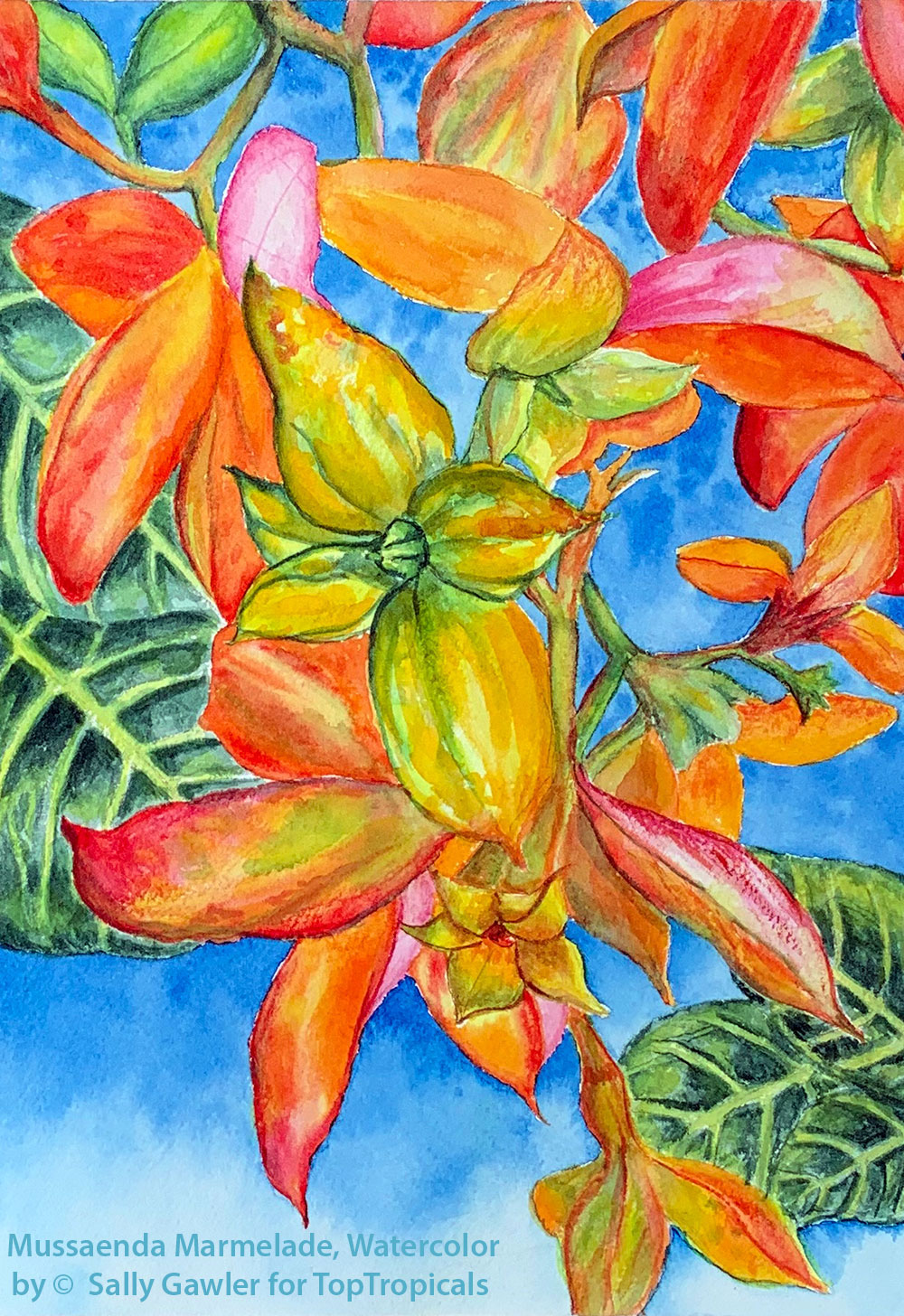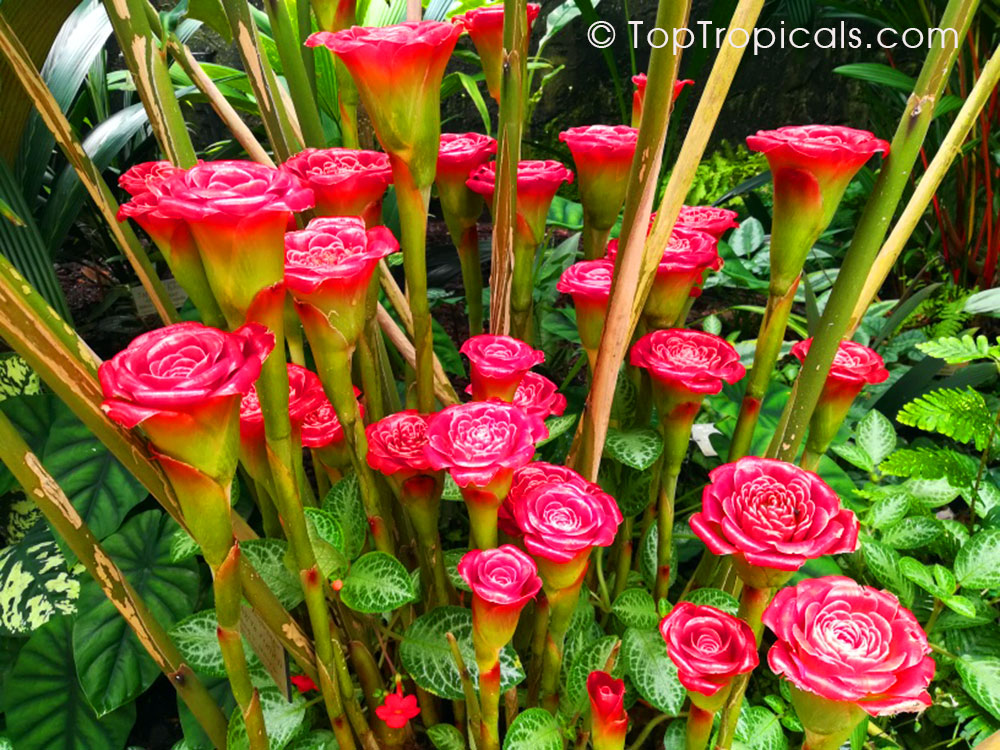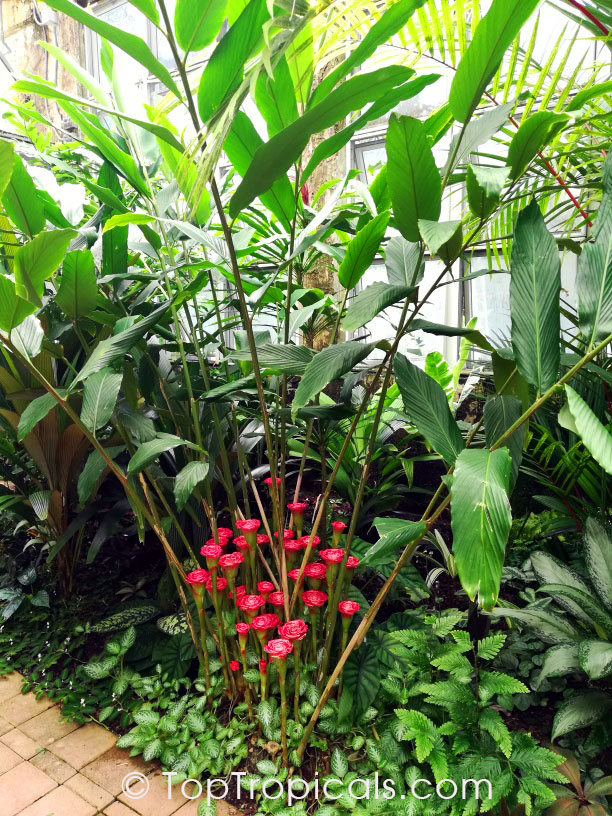Garden Blog - Top Tropicals
Date:
Benefits of growing your own tropical fruit
"The fruit of the mango tree is no longer forbidden.
Indeed, it has been recommended to me by the physicians as an antidote to the
plague."
- Louis IX, King of France -
Q: Why do you want to grow your own tropical fruit tree?
A: Growing your own tropical fruit tree can have many benefits. Here are a few reasons why someone might choose to grow their own tropical fruit tree:
1. Fresh, flavorful fruit: When you grow your own tropical fruit tree, you have access to fresh, flavorful fruit that you may not be able to find at your local grocery store. Tropical fruit, like avocado, mangoes, papayas, and passionfruit, jackfruit, Dragon Fruit, Annona have a short shelf life, and the fruit you find at the store may have been harvested weeks ago. When you grow your own fruit tree, you can pick the fruit when it's fully ripe and enjoy it at its peak flavor. Besides, some rare fruit like Akee or Sapodilla simply never offered from the store.
2. Environmental benefits: Growing your own fruit trees can have environmental benefits. Trees absorb carbon dioxide from the air and release oxygen, which can help reduce your carbon footprint. Additionally, growing your own fruit trees reduces the need to transport fruit long distances, which can help reduce greenhouse gas emissions.
3. Cost savings: Depending on where you live and the availability of tropical fruit, growing your own fruit tree can be a cost-effective way to enjoy your favorite tropical fruits.
4. Gardening and outdoor hobby: Growing a fruit tree can be a fulfilling and rewarding outdoor hobby. It can also be a great way to teach children about where their food comes from and the importance of taking care of the environment.
Overall, growing your own tropical fruit tree can be a great way to enjoy fresh, flavorful fruit, reduce your carbon footprint, save money, and enjoy a fulfilling outdoor hobby.
In the photo: Mango tree in Top Tropicals garden.
Date:
Noni, the Superfruit
Nature's Food and Pharmacy
At our Christmas Plant Market a few days ago, many guests purchased a Noni tree. Everybody loved its large, beautiful leathery leaves, and were buying Noni as a present. It was appreciated as ornamental, for example as a showy specimen tree with a tropical look for a pool area. But very few people actually knew that this tree was a source of a famous Noni Juice - a unique remedy from Mother Nature... Some were surprised the plant had so many health benefits! So we promised to tell more about Noni in our newsletter.
The Noni tree - Morinda citrifolia - is a beautiful ornamental tree because of its
glossy green leaves and curious fruit. The tree is prized for its medicinal
fruit.
The Noni is considered to be a "superfruit" because of its high levels of
antioxidants, vitamins, and minerals. The fruit, leaves, and roots of the Noni
tree are used in traditional medicine to treat a wide variety of ailments,
including pain, inflammation, and infections. Some people also use Noni fruit
and juice as a natural health supplement because of its potential health
benefits.
Additionally, the Noni tree is easy to grow and care for, making it a
popular choice for both gardens and houseplant collections.
For more information on health benefits of Noni, download pdf of Noni article (from our Magazine Tropical Treasures) and watch the video: Doctor Noni.
In the photo: Noni as a houseplant. So much better than a boring ficus!
In the photo: Noni is happily fruiting in 7 gal pot. It's a beautiful ornamental and a conversation piece.
Date:
Macadamia Goodness
Macadamia nuts are rich in vitamins, minerals, fiber, antioxidants, and
healthy fats. Their potential benefits include weight loss, improved gut
health, and protection against diabetes, metabolic syndrome, and heart
disease.
Native to Australia, Macadamia trees are now grown in various places around the world, such
as Brazil, Costa Rica, Hawaii, and New Zealand.
Like most other nuts, Macadamia nuts are rich in nutrients and beneficial
plant compounds. They are also linked to several benefits, including improved
digestion, heart health, weight management, and blood sugar control.
10 health benefits of macadamia nuts
1. Rich in nutrients
2. Loaded with antioxidants
3. Boost heart health
4. Reduce risk of metabolic syndrome
5. May aid weight loss
6. Improve gut health
7. Providing anticancer properties
8. Boosting brain health
9. Bumping up your longevity
10. Easy to add to your diet
Learn more...
Delicious Macadamia nuts are loved by everyone, but they are so expensive from a grocery store... If you are excited about this nut, start saving: get your own tree and harvest your own goodness!
Macadamia are very handsome trees. They are easy to grow, require very little care and are relatively cold hardy. The are slow growing, compact bushy trees that start fruiting within 2-3 years from seed. Macadamias trees are reliable producers. The most important in Macadamia cultivation - do not over-fertilize this plant, it is very sensitive to regular fertilizer. Use only liquid plant food, and provide Micro-elements on regular basis.
Read more about this plant >>
Date:
The fruit of Heaven:
Phyllanthus acidus - Amlak, Otaheite Gooseberry
Grow Your Own Food
This is a fun rare fruit tree to have if you like lemonade and believe in Vitamin C benefits! The tree is super easy to grow, relatively cold hardy and doesn't require any special care. It is a fast growing plant, however the mature tree is only about 20 ft so it will be well suited for any size garden, even container garden. As you can see, it happily fruits in a pot. Bright yellow fruit are beautiful and curious, they always make a conversation piece!
About Otaheite Gooseberry
Otaheite Gooseberry, or Amlak, is a rare tropical fruit tree from SE Asia and India, very
close related to Phyllanthus emblica (Amla, Amlaki), however it is much cold
hardy than Amla. Known as Amritphala in Sanskrit, which literally means "the
fruit of heaven" or "nectar fruit". It is so called because it has many
helth benefits. Amlak is one of the favorite fruit of Indian people who definitely know what is good for
you! Fruit paste is a major ingredient of Chavyanprash, a popular Ayurvedic tonic. It is the
richest source of vitamin C.
Fruits are borne in loose clusters, which hang from the tree trunk and main branches. Fruits are esteemed for jellies,
preserves and pastries, and are great for making a delicious lemonade rich in vitamin C. There are no commercial plantings; trees grow only in
home gardens.
You need to have one! Or two. We have only limited quantities.
Date:

December Fest on Dec 10, mark your calendars!
Topic: Edible landscape. 10:00am - 2:00pm. Agenda:
Class @ 11:00am by Robert Riefer. How to keep pests off of maturing fruit.
Class @12:00pm Super foods by Zoe Merring. Benefits of Soursop, barbados cherry, goji, moringa. Benefits and recipes.
Discounts on all edibles
Prize giveaways at 12:00pm and 2:00pm (must be present to win)
20% off After-Cyber-Monday sale! Now that everybody is done with shopping for monitors and speakers, it is time to get some happy stuff! 20% off on all fruit trees, 1 day only! Enjoy your shopping and get the plants you always wanted at a low price!
Date:
Grow your own food:
Pouteria campechiana - Canistel
The curious heart-shaped Egg Super-Fruit
by Alex Butova, the Witch of Herbs and Cats
...You will be surprised how many health benefits this fruit can offer! Yet is is a beautiful, curiously shaped piece of Nature's Art, and the tree is super easy to grow. It is relatively cold hardy and fast growing, providing with the first crop within a year or two...
10 greatest health benefits of Canistel fruit
1. Canistel is good for the heart
2. Canistel lowers the risk of diabetes
3. Canistel lowers the risk of cataract
4. Canistel treats osteoarthritis
5. Canistel prevents cancer
6. Canistel is immunity booster
7. Canistel is great for digestion
8. Canistel prevents anemia
9. Canistel promotes healthy bones
10. Canistel reduces the risk of Alzheimer's
Date:
Tropical Plant Art Contest:
we counted all the votes!
Painting above: 3rd place: "Tropical Florida" by Linda Hedary
"WOW! So many great works! Our followers certainly have a GREAT collective talent! Makes me so proud!" - a quote from TopTropicals Art Jury member, artist Mark Hooten.
Now that the whole country in in competition mode, gardeners are no
exception! Every painting is a work of art and it was hard for the Jury to make
the decision. We counted in all the votes that came in by the deadline ;)
Finally, we are happy to announce the winners of the Plant Art Contest!.
Visit our 2020 Tropical Plant Art Contest Page on our website and see all
participant entries, winners and their prizes!
See all Winners! >>
All winners will be contacted by us via email or Facebook within a few
days for their prizes. If you haven't heard from us by 11/9/20, please contact us with
the subject "Tropical Plant Art Contest" and your shipping information. You may also simply reply to this email, just make sure to set the proper subject.
A few entries came late, pass deadline/voting, keep up with the great
artwork and don't miss the next contest submission!
Thank you to all the amazing plant lovers who shared your artwork and talents with us. So much creativity and beauty for everyone to enjoy! Happy painting, and stay updated - new contest will be coming soon!
Painting above: "Hibiscus Wish" by Santhoshi Kavali
Painting above: "Mussaenda Marmelade" - Watercolor by Sally Gawler (Audience Appreciation Prize)
Painting above: "Purple Passion" by Joan Maier. Joan's painting "Butterfly" is the 1st place winner (see Contest page)
Date:
How to get gingers to bloom
Q: I have several gingers in my yard, including Red Torch, Lobster Claw, and Red Bamboo Ginger, they grow beautifully but only produce large dark green leaves and no flowers. Is there anything I can do to make them bloom? Do they need any special fertilizer?
A: Gingers are easy to grow tropical plants with so many benefits, giving us unique spice, and showy flowers (including long-lasting cut flowers!) - where other plants fail, especially in deep shade. They are not fussy about soils and even water once established. To keep your gingers happy, follow these simple steps:
1. Bright light is essential for flowering, but planting gingers in
semi-shade or filtered light will keep them stress-free from burning summer rays.
2. Water gingers regularly until they established and start producing
new leaves and stems. Once they start clumping, you may reduce watering to a
minimum 9once a week or so), or rely on your sprinkler system.
3. Once the plant is established, start using fertilizer to induce
flowering and healthy growth.
- We recommend granulated "smart release" fertilizer for all tropical
plants. For gingers, the best formula is Tropical Allure. It provides all macro- and microelements essential for
the healthy growth of the plant.
- Apply balanced water-soluble plant food for Gingers, Heliconias and
Bananas -
Broad Leaf Plus - once a month.
- Additionally, you may also add to the menu flower booster Pink N Good Daly Plant Food - this fertilizer is used in very low
concentration and can be used with every watering.
4. Remove old dry and yellowing leaves with sharp cutters to avoid pest
problems and keep good air circulation around these clumping plants.
5. Keep soil covered with 1" mulch to protect from weeds and maintain
the optimal amount of moisture for the rhizomes.
Check out our specialized fertilizers for different plants - for all your gardening needs!
Date:
Top Tropicals Video Presents: Doctor Noni

Top Tropicals Video Channel. We are happy to introduce to our customers our new project - Top Tropicals Video. Gardeners have been enjoying our Tropical Treasures Magazine with its unique stories on fascinating plants, their history, plant clinic and Do-It-Yourself projects. Now you can have more fun to visit actual tropical paradise by watching our short movies in your convenience - from your computer, or simply on your smart phone. In our future video tours, we will be showing both popular and rare exciting plants and how to grow them. We will be sharing little secrets of how to make these plants happy, so they will make your own life brighter and happier. Stay updated with TopTropicals Videos by subscribing to our YouTube channel at YouTube/TopTropicals and get our latest video news of what's fruiting and blooming! Our today's video story -
Doctor Noni - life sustaining plant.
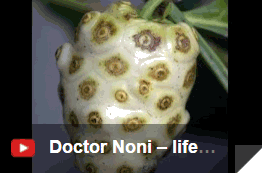 Many people have heard about the mysterious and miraculous Noni fruit, yet few know exactly what it is.
This odd-looking fruit grows on a beautiful tropical tree from Polynesia - Morinda citrifolia, that actually belongs to a Coffee family! The Noni fruit, also called Cheese Fruit for its special odor, has unique health benefits. It is said that this plant food is to be used when we are feeling really ill or really old... Do you want to know how to have your own FREE fresh Noni juice year round? Check out this Movie: Doctor Noni - life sustaining plant...
Many people have heard about the mysterious and miraculous Noni fruit, yet few know exactly what it is.
This odd-looking fruit grows on a beautiful tropical tree from Polynesia - Morinda citrifolia, that actually belongs to a Coffee family! The Noni fruit, also called Cheese Fruit for its special odor, has unique health benefits. It is said that this plant food is to be used when we are feeling really ill or really old... Do you want to know how to have your own FREE fresh Noni juice year round? Check out this Movie: Doctor Noni - life sustaining plant...
Date:
Plants for happiness and joy

Plants as homeopathic remedies and happiness boosters. Many people know about health benefits of vitamin C which improves and boosts our immune system similar to SUNSHINE plant booster stimulating growth of plants. But not everybody realizes that this vitamin is responsible for overall happiness of our body, it brings many systems in balance. A number of tropical plants used in salads, as well as fruit with high content of vitamin C can play dual role in your life. You can use them as food, as well as enjoy their beautiful tropical appearance. Such plants will help you feel interest and joy in life when you feel apathetic and resigned to the situation you are in. Just to name a few:
Lychee
Barbados Cherry
Eugenias
Hibiscus Karkade
Try them out. Stay healthy and happy!
